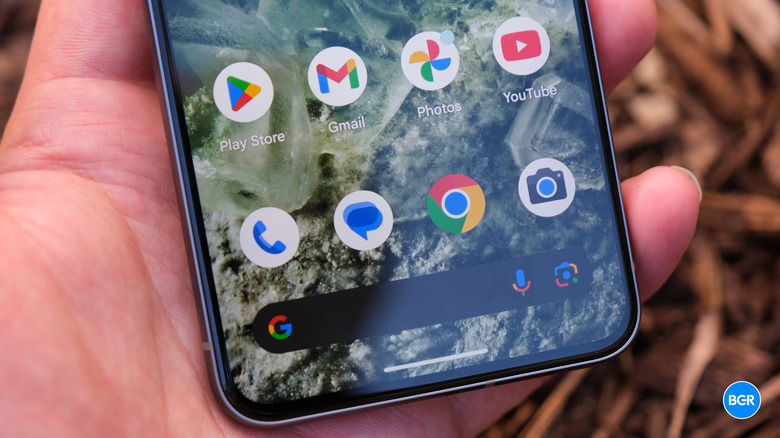Why Google's Pixel 9 Won't Be A Worthwhile Upgrade If You Already Have A Pixel 8
We've reached a point in smartphone history where mid-range phones are incredibly fast and dependable. Flagships feature even better hardware, as top-of-the-line processors can power fast experiences, advanced camera features, and AI. That's why we can't expect major performance upgrades from year to year.
Even so, the Pixel 9's Tensor G4 might disappoint some Android fans, especially those looking for a significant speed bump over the Pixel 8 series. A new report says the Tensor G4 will only offer marginal speed gains over its predecessor.
Moreover, it won't pack any significant changes to the parts of the chip that handle photo processing or AI. That might be a good thing for Pixel 8 users, however. Google might port whatever exclusive Android features it adds to the Pixel 9 series, including some unique AI apps that have already leaked, to the Pixel 8.
A source who claims to work at Google has reportedly leaked Tensor G4 specs to Android Authority.
The chip will feature eight cores in a 4+3+1 arrangement based on Arm's new ARMv9.2 cores: the Cortex-A520, Cortex-A720, and Cortex-X4. These cores are clocked slightly higher than the Tensor G3, which features nine CPU cores.
The blog also listed leaked Pixel 9 Pro XL benchmarks that show what the Tensor G4 is capable of compared to the Pixel 8 Pro. We're looking at 11% speed gains in single-core tests (1950 vs. 1761) and about 3% in multi-core tests (4655 vs. 4523).
The Tensor G4 also uses the same Mali-G716 GPU as the Tensor G3, though it's clocked slightly higher than before.
The big upgrade coming to the Tensor G4 chip concerns the model. Google went for the newer Exynos Modem 5400 from Samsung. The 5400 will support satellite connectivity and up to 50% efficiency gains.
The Tensor G4 will otherwise pack the same custom IP blocks as its predecessor, according to the report:
As of the Tensor G3, Google has quite a few custom IP blocks: Edge TPU (ML accelerator), GXP (Digital Signal Processor, primarily used to accelerate camera tasks), BigWave (AV1 encoder/decoder), Titan M2 security chip, and more.
Finally, the report notes that the G4 is packaged using the same FOPLP technology rather than Samsung's FOWLP tech, which is better for thermals.
Google will essentially use a variation of the G3 to power phones that will have to compete against the Snapdragon 8 Gen 3 in phones like Samsung's Galaxy S24 and the upcoming A18 chips in Apple's iPhone 16 series.
It turns out that Google had a bigger upgrade in mind for the Pixel 9. The same report claims the Tensor G4 was supposed to be designed independently from Samsung. But Google missed a deadline, forcing it to come up with the current variant.
What we'll take away from this is that Google might not be able to blame the Pixel 9 hardware if it decides not to bring some of the Pixel 9 features to the Pixel 8 and 8 Pro. But we'll cross that bridge when we get there.
However, one thing could improve the performance of Pixel 9 phones: RAM. Google is reportedly planning a big upgrade. The Pixel 9 Pro models will get 16GB of RAM, while the Pixel 9 will go to 12GB. That's all according to Google's Pixel 9 documentation, which was leaked recently.
That said, we don't have to wait too long for more information on the Pixel 9's capabilities. Google will detail the Pixel 9's specs and performance during its August 13th event.
